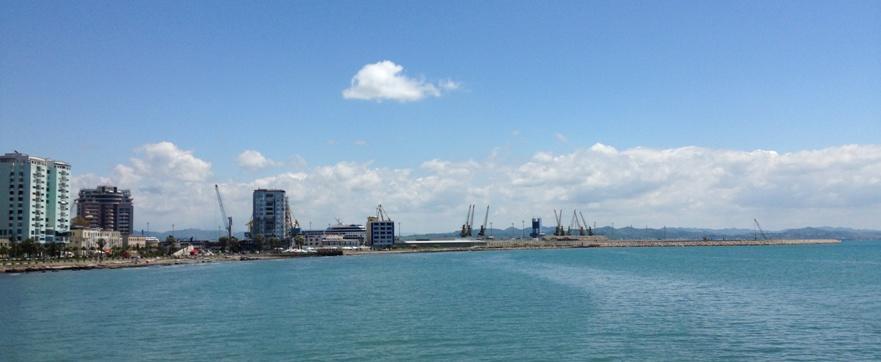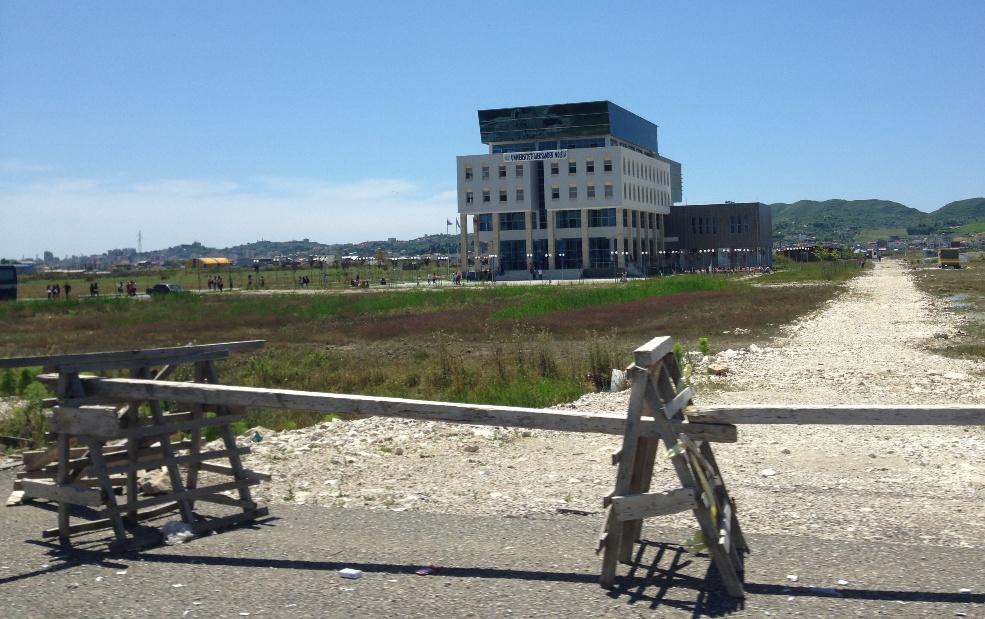Not necessarily… Albania has had designated industrial zones for several years now, but they have yet to attract investors and many remain empty. The CID project in Albania is working to support an increase in the country’s exports, and developing industrial zones is a key strategy in this effort. CID is working with a team of experts from the government to determine why these zones have not attracted development and what measure can be taken to change this.
He (Charlie) Tian, one of the CID interns working in the Ministry of Economic Development, Trade and Entrepreneurship, recently visited the Spitalle Free Zone (photo below) in Durres. Measuring 500 hectares with potential to expand to 800 hectares, the site is a good size and ideally located next to the Port of Durres and a major highway that connects the area to the capital. The Port of Durres is an ideal location for an export-oriented industrial zone. It is the largest port of Albania and covers more than 80% of the country's maritime transport.

Spitalle is also next to a small energy park that could potentially provide opportunities for synergy between the two sectors, however there is currently no infrastructure developed on the site. “The Spitalle Free Zone in Durres remains an almost empty piece of land,” notes Tian. “In China it only takes a couple months for empty land to develop into industrial zones but here negotiations with developers have been delayed due to ongoing discussions within the government regarding laws and incentives.”
The Ministry of Economic Development will meet with potential investors this week to discuss the development of this site. Some of the industries that this site has potential to support include:
-
Energy production: Energy product exports are increasing quickly and there is potential for more mineral manufacturing and refining.
-
Fashion (textiles and footwear) production: Albania has a significant cost advantage in terms of human capital. Factories already exist around Tirana and Durres in this sector, but coordination could be improved by clustering them.
- Services and Trade industry: Importers and exporters could set up in the free zone to avoid tariffs and customs payments and therefore increase efficiency.
“It could be the very first industrial park/free zone that functions in Albania,” says Tian, “and we are supporting the Ministry in preparation of the presentation for investors.”
One of the complications the government now faces in developing these zones is dealing with the numerous illegal constructions that are currently using the space. For example, in Spitalle a local university was been built right in the middle of the industrial zone land.

It will take time and also compensation to remove illegal constructions from the land, which is one of the major concerns of potential investors. This is just one of the many challenges the CID team will be tackling along with the government of Albania in an effort to support the development and growth of these existing resources.
About the author: Karen Vanderwillik is a summer intern for the Economic Growth in Albania project.